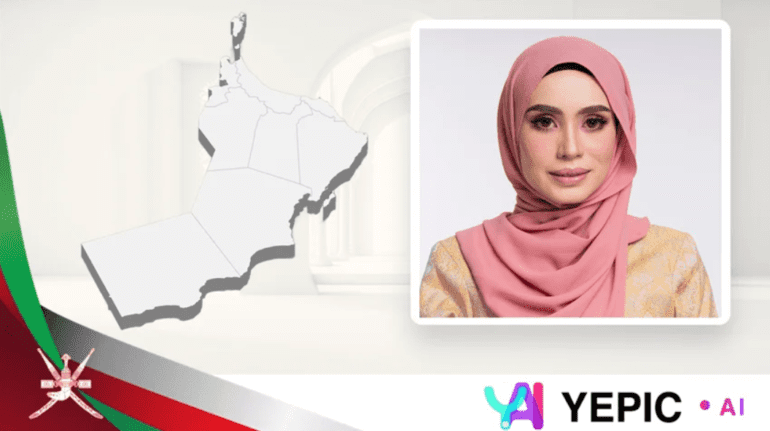TL;DR:
- Oman’s government utilizes Yepic AI’s generative AI to deliver real-time Shura election results.
- The AI-driven workflow begins with online voting verified by facial recognition technology.
- Custom avatars representing the Omani community deliver results in real-time.
- 400 unique videos per hour in six languages were generated, reaching all provinces.
- Yepic AI’s collaboration aligns with Oman’s Vision 2040 for a diversified economy.
Main AI News:
In a groundbreaking online election experience, the Oman government has unveiled its Shura election outcomes to its citizens in real-time, all thanks to the power of generative artificial intelligence (AI). The Ministry of Interior has joined forces with London-based generative AI pioneer Yepic AI to revolutionize the delivery of election results to the public, presenting them in a visually captivating manner. Yepic’s API facilitates the rapid creation of top-notch videos at scale, available in multiple languages, all from a single photograph. The technology was employed to craft bespoke avatars that mirror the Omani community, which subsequently disseminated real-time election results to citizens throughout the day.
This electoral reporting process is a meticulously orchestrated AI-driven workflow, commencing with online voting, verified through AI-driven facial recognition technology. Subsequently, the outcomes were meticulously compiled and announced via meticulously crafted scripts, courtesy of a large language model (LLM) designed specifically for the elections by AiCubes, followed by articulate delivery by Yepic’s AI presenters. The aspiration is that by conveying information to citizens in a more visual, personalized, and immersive manner, civic engagement in the electoral process will experience a remarkable surge.
On an hourly basis, a staggering 400 unique videos were generated, accessible through a dedicated app and distributed to every province. In total, Yepic AI churned out a staggering 10,000 state-of-the-art videos over the course of the day, catering to six languages, including Arabic, English, French, Spanish, Chinese, and Russian.
Aaron Jones, Co-founder and CEO of Yepic AI, remarked, “Leveraging the potential of generative AI to redefine how election results are communicated represents a monumental leap for Yepic AI and for Oman as a nation. We are profoundly honored to collaborate with the Oman government on this pioneering endeavor. Our mission at Yepic AI is to reshape communication through video, and witnessing our technology harnessed in this manner is a testament to our progress. We are exhilarated to be part of this historic moment and eagerly anticipate further collaboration with Oman as it integrates AI into public services to enrich the lives of its citizens.”
Ioannis Kazantzidis, Co-founder and CTO of Yepic AI, added, “Our partnership with the Oman government underscores the vast opportunities in real-time, personalized video content creation, ushering in a new era of innovation and engagement in the digital realm. The integration of real-time video generation into workflows and at scale represents the future of how we interact with AI, acquire and disseminate information. Collaborating with Oman to pioneer this initiative has been an exceptional experience.“
In line with the Oman government’s Vision 2040, a strategy focused on nurturing a diversified, dynamic, and globalized economy, Yepic will continue its collaboration with Oman to elevate AI-driven digital experiences for its citizens.
Conclusion:
The adoption of Yepic AI’s generative AI for real-time election reporting in Oman signifies a significant advancement in the integration of AI technology into government processes. This innovative approach not only enhances civic engagement but also showcases the potential for AI-driven solutions to transform communication and engagement in various sectors. It highlights a growing market for AI applications in public services and data visualization, offering opportunities for technology providers and businesses to contribute to the evolution of digital experiences in government and beyond.

